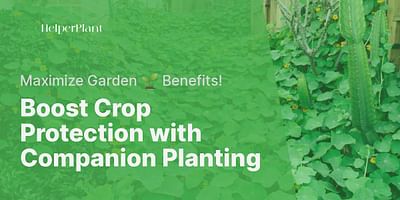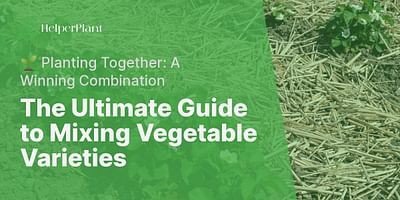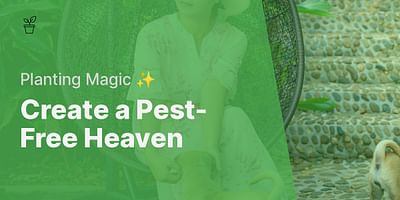Maxwell is a botanist and researcher who specializes in plant interactions. He has published numerous papers on the subject and is always looking for new ways to improve plant growth. In his free time, he enjoys playing chess and reading science fiction.
Absolutely! Planting flowers and herbs alongside your vegetables can have numerous benefits. Not only can they enhance the beauty of your garden, but they can also improve the health and productivity of your vegetable plants. In fact, this gardening technique is known as companion planting.
Companion planting is the practice of growing different plants together to create a mutually beneficial environment. When it comes to vegetables, flowers and herbs can play a crucial role in attracting beneficial insects, repelling pests, improving pollination, and enhancing soil fertility. Let's dive into some of the specific benefits of planting flowers and herbs with your vegetables.
1. Pest control: Certain flowers and herbs have natural pest-repellent properties. For example, marigolds emit a scent that repels aphids, nematodes, and other harmful insects. Nasturtiums act as a trap crop, attracting pests away from your vegetables. By interplanting these flowers with your vegetables, you can naturally reduce pest damage without relying on chemical pesticides.
2. Pollination: Many vegetables require pollinators, such as bees and butterflies, to produce fruits and seeds. By planting flowers that attract these pollinators, you can increase the chances of successful pollination. Bees are particularly attracted to flowers like bee balm, lavender, and sunflowers. These flowers not only beautify your garden but also ensure a bountiful harvest of vegetables.
3. Soil fertility: Some flowers and herbs have the ability to improve soil fertility by fixing nitrogen or repelling harmful nematodes. For instance, planting nitrogen-fixing legumes like clover or vetch alongside your vegetables can enrich the soil with nitrogen, an essential nutrient for plant growth. Additionally, herbs like dill and cilantro release chemicals that deter nematodes, microscopic worms that can damage plant roots.
4. Aesthetics and biodiversity: Planting flowers and herbs with your vegetables adds visual appeal to your garden. The vibrant colors and different heights create a visually pleasing and diverse landscape. This diversity also attracts a wide range of beneficial insects, such as ladybugs and lacewings, which help control pests naturally.
When selecting flowers and herbs to plant with your vegetables, consider their compatibility in terms of sunlight, water requirements, and growth habits. Some popular choices include marigolds, nasturtiums, calendula, chamomile, basil, dill, and parsley. However, the best companions may vary depending on your specific region and the vegetables you are growing.
Remember to plan your garden layout carefully, considering the space requirements and growth habits of each plant. Some plants may compete for resources or overshadow others if not properly spaced. Additionally, regular maintenance, such as watering, weeding, and pruning, is essential to ensure the health and vitality of your companion plants.
In conclusion, planting flowers and herbs with your vegetables is a fantastic way to create a harmonious and productive garden. By attracting beneficial insects, repelling pests, improving pollination, and enhancing soil fertility, companion planting can lead to healthier and more abundant vegetable crops. So go ahead and experiment with different combinations to discover the perfect companions for your vegetables. Happy gardening!















